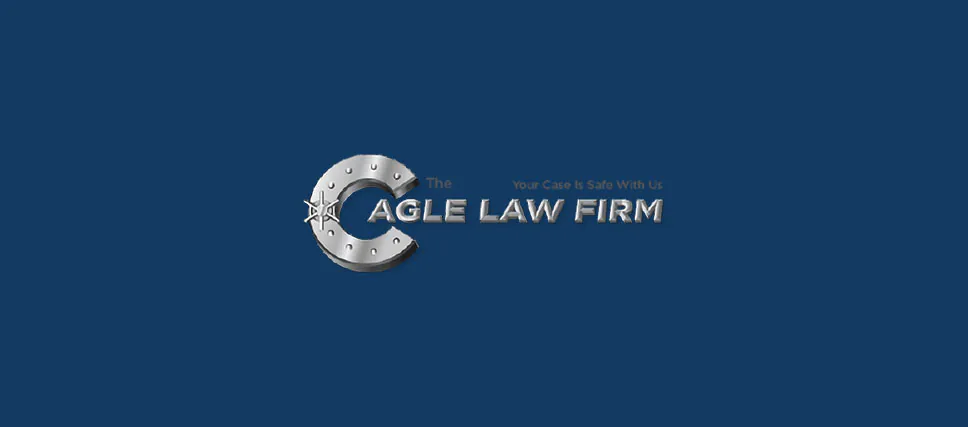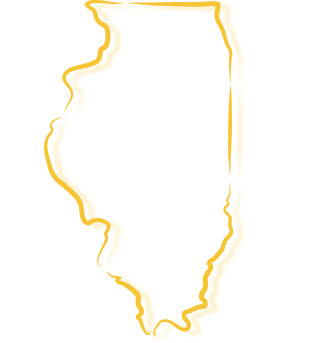Two Motor Vehicle Crashes Partially Close I-70 on Friday in St. Louis

By The Cagle Law Firm | November 25, 2024 | News
Two Separate Large Truck Crashes near St. Louis last Friday on I-70
According to the Missouri State Highway Patrol, two crashes occurred almost three hours apart last Friday and partially shut down Interstate 70. Any time a crash involves a large semi-truck the probability of serious injuries and death greatly increase. In both crashes, the MSHP listed the injuries as “moderate”.
An afternoon crash on eastbound I-70 west of Jennings Station Road sent to people to the hospital. According to the report, a Freightliner traveled off the roadway to the left, struck a concrete median barrier and began to slide. The semi then returned to the roadway and struck the left side of a Chevy Cruz. A party in the semi and a party in the Chevy were transported to the hospital. Both drivers were listed as from St. Louis, MO.
A early evening crash occurred on eastbound I-70, west of Interstate 270 involving another Freightliner and a Chevy Traverse. Two occupants in the Chevy Traverse were moderately injured and both from St. Louis, Missouri. According to the MSHP, both vehicles were traveling eastbound. The Chevy Traverse slowed for traffic congestion when the Freightliner struck the right rear end of the Traverse. According to the MSHP, the semi was following too close and traveling too fast for conditions. The Traverse driver, a 38 year old St. Louis man was moderately injured as well as the 38 year old female passenger.
What Does “Moderate Injury” Actually Mean?
The term “moderate injury” may seem self-explanatory, but it actually is not. Those individuals with moderate injuries are almost always transported to the ER via ambulance. The injury classification given in online police reports include the officer or trooper’s assessment based at the scene. Law enforcement does not pretend to give medical diagnosis and the injury classification is not definitive. In fact, there are many people in crashes that may be listed as “minor” yet they end up requiring a great deal of medical care. When law enforcement give injury reports as part of the STARS Report Descriptions, it is their best estimate based upon the scene. These descriptions assist in classifying crash and driver statistics at the scene of a crash. These statistics are analyzed involving severity, traffic patterns and safety initiatives. Fatal crashes require an accident reconstruction and may take several hours.
However, if you have a “moderate injury”, it seems like a really big deal to you because it is. If you are given a classification of “moderate”, it may mean that an ER trip will take care of it. However, the vast majority of moderate injuries do involve quite a bit of follow up medical treatment (months) and may involve surgery.
A common injury in motor vehicle crashes are spine injuries. While they are “common”, they are in no way simple or easy. If you have suffered a spine injury, you may not know the full extent after a trip to the emergency room. Common protocol at the ER is to administer x-rays and possibly CT scans that rule out broken bones. Unfortunately, there are quite a few parts of the spine other than a fractured bone than can result in ongoing pain and problems. You may be diagnosed with “whiplash” which is a strain/sprain in your neck. Likewise, if you injure your left knee but no bones are broken, it is called a “knee strain/sprain”. We all know that there a many serious injuries that do not involve broken bones. However, many individuals have ongoing symptom pain for weeks if not months later and need to see specialists and have individualized treatment plans.
How To Approach a Spine Injury?
The is a huge wave of relief when you discover you have not broken a bone in your neck or lower spine. The spine is rather complex and injuries to your spine can cause radiating pain into arms, legs, shoulder and fingers. Often times, the actual bone or vertebrae is not broken, but the cartilage or discs that surround the vertebra can be injured. When discs are injured including terms such as “herniated” or “slipped”, it is incredibly painful. The ER performs x-ray or CT and rules out broken bones, and they discharge you. A common statement we hear from clients is that “the ER said I was good” when in fact, the ER said “nothing was broken”. This is a major difference. This can create a lot of confusion for those with spine injuries. If your pain continues, follow up with a medical treatment. Do not wait weeks under the impression that the “ER said I was good”. Unfortunately, we speak to many people who thought they were just healing badly weeks after visiting the ER but thinking the ER said they were fine. No, the ER rules out broken bones and severe brain injuries. Pain is the body’s way of communicating that “everything is NOT fine”.
ER Discharge Instructions……
Yeah, as many of us have visited the ER, it takes a long time and is really hectic. Once you hear that you don’t need emergency surgery, it is tempting to grab your discharge papers and head home assuming all will be well. Hopefully, it is. However, about half of the people that are treated and released in the ER do need follow up treatment. We have rarely come across an ER that fails to say in the discharge papers to “follow up with your primary care doctor”. There is a really good reason this is listed and advice you should heed. You should immediately schedule an appointment with your primary care doctor. Your primary care doctor will develop a treatment plan for you and recommend a referral to a specialist if you are not progressing as expected.
Pay attention to the discharge instructions and make an appointment with your primary care doctor. Your primary care doctor will want to know if you have been in a motor vehicle crash and sustained trauma. Failing to include your primary care doctor in your treatment can be a prolonged time of pain and failure to have a timely referral.
Mistakes to Avoid
Do not wait for permission or approval from any auto insurance carrier to seek medical treatment. This is lunacy and of course, the adjuster cannot approve or deny treatment but will certainly use any time lapses against you. Crash victims that wait for “approval” from auto insurance carriers simply fail to get needed treatment. When medical treatment is needed to prove your claim, why would an auto insurance carrier advise you to seek medical help? They don’t approve or encourage. You should NOT take medical advice from an insurance adjuster as they are not medical professionals and their goals are not the same as yours. Your goal is to improve. Their goal is to deny or devalue claims.
Do not discuss your injuries with any auto insurance carrier if you are injured. “Yes, I am hurt and I am still treating”. Insurance adjusters are not actually entitled to an inventory of your injuries, your identifying information nor the name of your health insurance company. In fact, they do not have to be advised as to whether or not you have insurance. If you are hurt, sharing information with the auto insurance carrier early is a mistake. Talk to a car accident lawyer and do not speak with an adjuster while you are taking medication that may impact your ability to recall–essentially any pain medication or muscle relaxers. You do not get points for oversharing.
Do not assume your auto insurance carrier has your best interest in mind.
Fail to call an attorney. There are significant advantages to hiring an attorney ASAP if you are injured. One, an attorney can protect your right to an injury claim and deal with adjusters so you do not have to worry about who is looking out for your best interest. Insurance adjusters simply treat individuals without attorneys more poorly. No matter your education level or how savvy you are in business, insurance adjusters know “unrepresented” one way.
Call an Expert Auto Accident Lawyer
We know crashes do not just happen between 9 a.m. and 5 p.m. during the business week. We are available seven days a week. If you are injured, you want someone in control of the process. If you are injured, you do not want to be turned into a medical record/bill collector for the insurance adjuster. If you are hurt—you need to be focused on treatment. Each collision is as unique as the people involved. We evaluate each crash and the impact of that crash on you.
Call us toll free 1.800.685.3302 or locally 314.276.1681
Contact Us Today
The Cagle Law Firm serves accident and injury clients throughout St. Louis and the greater St. Louis metro area, including St. Louis Counties of Chesterfield, Wildwood, Eureka, Ladue, Olivette, Clayton, Kirkwood, Fenton, Affton, and Jefferson Counties of Arnold, High Ridge, Antonia, House Springs, and the eastern Missouri and southern Illinois communities. If you or your family needs legal assistance with your personal injury case, call The Cagle Law Firm at (314) 276-1681 or use our online contact form to request a free case review or get more information.
Areas Served
The Cagle Law Firm – Missouri
The Cagle Law Firm – Illinois
The Cagle Law Firm – Kentucky
CONTACT THE CAGLE LAW FIRM TODAY
Request your FREE CASE REVIEW today by calling (314) 276-1681 or by sending a message through the site contact form. Your contact info stays private and is only used to reply to your inquiry.
Whether you need information about a new injury or existing injury, our lawyers answer your questions with no-risk and no followup marketing.
Free Consultations and Case Reviews
Questions? Ask An Attorney
Fields marked with an * are required
Copyright © 2025 St. Louis Personal Injury Lawyers | The Cagle Law Firm. All rights reserved.
Disclaimer | Site Map | Privacy Policy
Get a free case review with St. Louis' best personal injury lawyers to help you win top compensation





